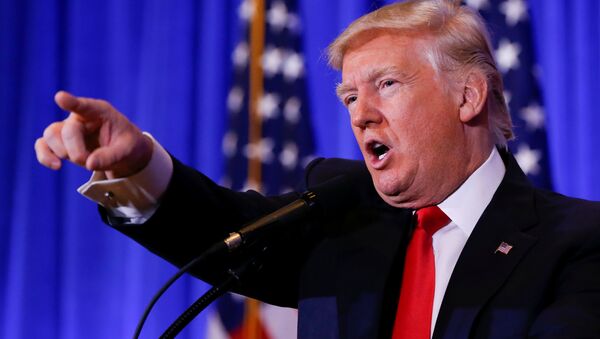Just two days before Trump's inauguration as the 45th President of the United States of America, London-based think tank Chatham House published an analysis into the perceived implications of Trump's presidency.
The report, titled, America's International Role Under Donald Trump, says that Trump's lack of interest in supporting the established international liberal order, which has included criticism of long-standing US alliances such as NATO, means "he is likely to offer them significantly less support than did previous presidents."
New report: America's International Role Under Donald Trump — get in-depth analysis ahead of Trump's inaugurationhttps://t.co/asmqGRODtB pic.twitter.com/kYLVx4MEgU
— Chatham House (@ChathamHouse) January 18, 2017
"At a minimum, he will leave their members, and America's partners, uncertain about US reliability," the report states.
Researchers say that unlike previous presidents, Trump is likely to prioritize economic advantage over security concerns, which could lead the US to change its current approach towards certain countries.
Trump's foreign policy in a nutshell: He seeks to make a friend of our enemy, Russia, and an enemy of our friend, Mexico. https://t.co/S5VmoAcqGX
— Bret Stephens (@StephensWSJ) January 13, 2017
"He may be more willing to overlook Chinese or Russian transgression of international norms, or challenges to the sovereign independence and stability of other states, for example, if he feels he can trade it for direct gains on the economy."
Relations With Russia to Cause 'Great Upheaval'
On the issue of international relations, researchers noted that Trump's apparent willingness to work with Russia is likely to cause the greatest geopolitical "upheavals" in the short-term.
While the Obama administration and other Western allies have imposed sanctions on Russia over the country's actions in Ukraine, Trump's rhetoric towards Moscow has been much more conciliatory, with speculation he may dramatically shift Washington's approach.
An unpredictable Trump after a predictable Obama need not be bad for US foreign policy, @RobinNiblett tells @BBCr4today. pic.twitter.com/eTui7dz6B4
— Chatham House (@ChathamHouse) January 12, 2017
"Trump's willingness to support a closer relationship with Russia (and potentially pursue a 'deal') is likely to cause the greatest upheavals in the geopolitical balance in the short term," the report says, noting that such moves could affect US ties with Europe.
"This has particular implications for the Middle East and Europe, where his less engaged approach could allow President Vladimir Putin to continue his more assertive policy and will cause friction with many European allies."
The turning point is here: Trump is openly against the EU and saying other countries will break away #EPlenary
— Guy Verhofstadt (@GuyVerhofstadt) January 18, 2017
On a personal level, the report noted that Trump's personal style, which differs from that of previous presidents, could also create confusion and friction within international institutions and between the US' allies.
"Trump's personality and style — brash, unpredictable, contradictory and thin-skinned — promises to have a meaningful impact on his engagement in foreign affairs. In addition to leaving foreign leaders uncertain about US policy, this could impair cooperation in international organizations such as the G7 and APEC, where the US president plays an important personal role. As a result, these institutions would be less effective."



